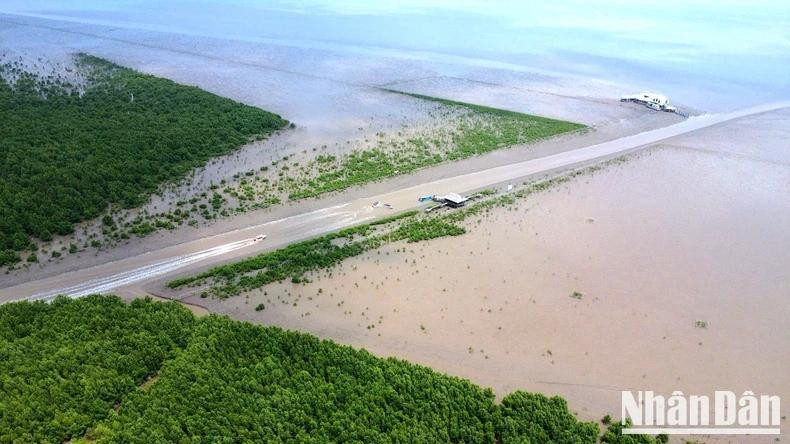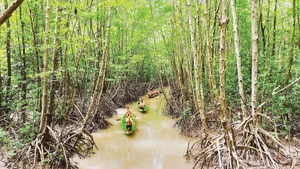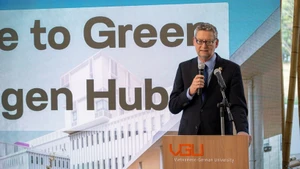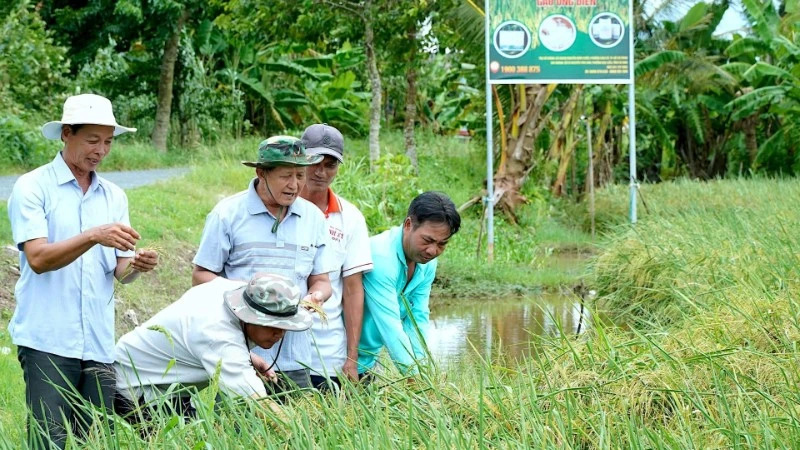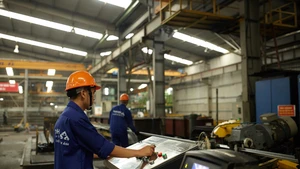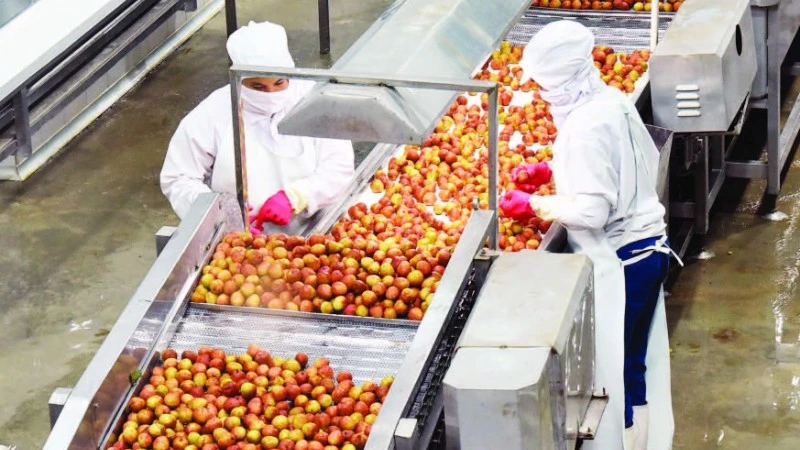This is not only natural beauty but also the result of persistent efforts by local authorities, organisations, and people to protect the environment and build a civilised and nature-friendly lifestyle.
Turning waste into income to reduce poverty
Since the 2020 Environmental Protection Law was widely implemented, many waterway communities in Ca Mau have developed the habit of sorting waste at source. The mindset of “just throw it away” has gone; people now recognise the value in every bottle, beer can, or piece of plastic, materials that can be reused or even generate income.
Nguyen Thi Hong Duyen, Chairwoman of the Women's Union in Rach Goc Town (Ngoc Hien District), after calling a trader to deliver piglets for distribution to disadvantaged members, shared: “From our scrap fund, we allocated nearly four million VND to buy a pair of piglets to support a disadvantaged member. We conduct open and transparent evaluations to ensure the support reaches the right people, in line with their actual needs. A pair of pigs may not seem much, but if raised well, they can bring stable income within just a few months.”
Since 2022, the local Women's Union has implemented the waste sorting model across all nine branches, involving nearly 850 members. Each household receives a three-compartment bin to separate organic waste, recyclables, and residual waste. Organic waste is composted, and recyclables are sold to raise funds. As a result, living spaces have become cleaner, the environment has grown more friendly, and most importantly, community bonds are stronger. Le Thi Cuc, a member of the Women’s Union in Hamlet 3, joyfully said: “We used to litter indiscriminately, but now we sort our waste. Our homes are tidier, and we even earn some money to buy milk and books for the kids.”
From the “turning trash into cash” fund, the local Women’s Union has organised various livelihood programmes and provided food, books, and uniforms to poor students, with total support exceeding 20 million VND. Many members, like Vo Thi Thuy Duong from Hamlet 1, have stabilised their lives thanks to support with breeding pigs, gradually escaping poverty sustainably.
Making waste useful
Not only in Rach Goc, other areas in Ca Mau have also come up with creative initiatives. In Thoi Binh District, the “Exchange waste for green plants” model has proven effective. By simply bringing 1.5–2 kilograms of plastic waste, people can exchange it for seedlings like green-skinned pomelo, soursop, and star apple. “It reduces waste and greens empty land. People are very supportive,” affirmed Ly Minh Vung, Chairman of the Thoi Binh District People's Committee.
In Tran Van Thoi District, Women's Unions have granted more than 760 scholarships and livelihood support packages worth over 400 million VND, largely funded through recycling revenue. Initiatives such as “Waste-for-gifts stalls”, “Litter-free roads”, “Green houses”, “Bring a basket to market”, and “100-dong houses” are gaining traction among communities, especially among youth and women.
Notably, Ngoc Hien District was early to adopt Action Programme No. 12-CTr/HU on environmental protection and climate change adaptation for 2021–2025. From markets to offices, from residential areas to rural villages, waste sorting points have been established, gradually fostering a culture of awareness and voluntary action. “The biggest success of the programme is raising awareness and changing community behaviour, starting with the smallest act of waste sorting,” assessed Tran Hoang Lac, Chairman of Ngoc Hien District People's Committee.
Under the 2020 Environmental Protection Law, since January 1, 2025, household waste sorting at source become mandatory nationwide. Households that fail to comply may be fined up to one million VND. In this context, creative grassroots models like those in Ca Mau not only stay ahead of the curve but also lay the groundwork for effective legal implementation through community consensus and voluntary action.
Le Thanh Trieu, Chairman of the Vietnam Fatherland Front of Ca Mau Province, noted: “Environmental protection cannot be achieved through administrative orders alone. It must start with a shift in mindset and lifestyle. Creative models like ‘turning trash into livelihoods’ have contributed to transforming rural landscapes, improving living standards, and building a sustainable new countryside.”
Without the need for flashy campaigns, it is perseverance and grassroots innovation that bring vitality to Ca Mau’s environmental initiatives. And from every recycled plastic basket, every tree planted in exchange for waste, a green lifestyle is taking root in each home, helping to preserve the environment and protect the future for generations to come.
